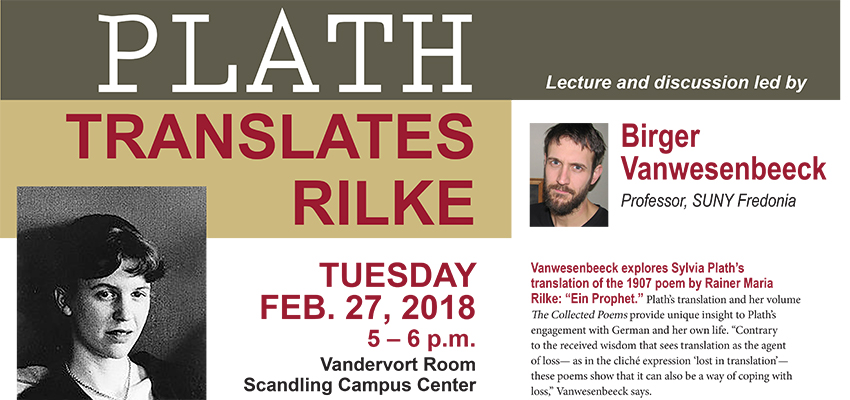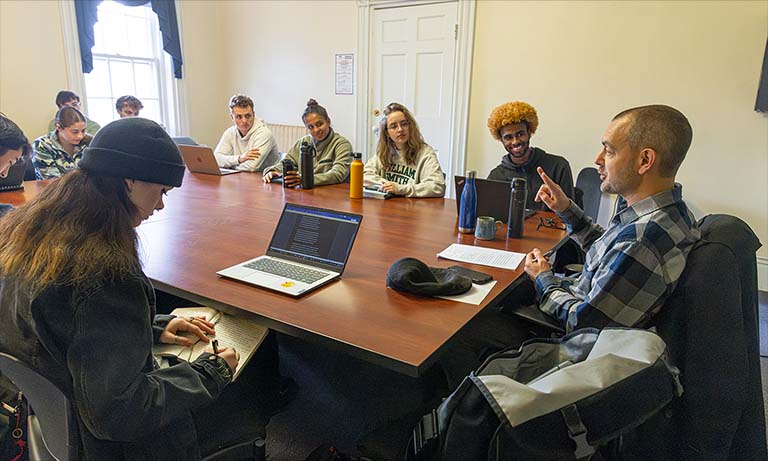
HWS News
16 February 2018 • Humanities Examining Work of Sylvia Plath
American writer Sylvia Plath is best known for her poems and semi-autobiographical book The Bell Jar, but her translation of Rainer Maria Rilkes 1907 poem "Ein Prophet" provides unprecedented insight on the author's grief following her father's untimely death.
On Tuesday, Feb. 27, Birger Vanwesenbeeck, an associate professor of English at SUNY Fredonia, will speak at HWS on Plath's translation at 5 p.m. in the Vandervort Room of the Scandling Campus Center.
The translation of the German poem, Vanwesenbeeck says,
"has not received much interest from scholars since its publication in Plath's The Collected Poems in 1981."
"This lack of attention is surprising in so far as Plath's engagement with German, a language that she would continue to study over the next few years, extends all the way to her so-called 'Daddy Elegies,' the six poems that she wrote about the untimely death of her German-born father, Otto Plath," explains Vanwesenbeeck.
As one of the most influential writers of the 20th century, Plath's work plays a key role in Vanwesenbeeck's current research, which explores the connections between ekphrasis (the vivid description of a work of art in literature), and the process of mourning from antiquity to the present. "Contrary to the received wisdom that sees translation as the agent of lossas in the clich expression 'lost in translation,' these poems show that it can also be a way of coping with loss," he says.
Vanwesenbeeck, who has been teaching at Fredonia since 2007, is the co-author of William Gaddis, The Last of Something: Critical Essays, and several journal articles.
The lecture is sponsored by the Julius G. Blocker '53 Endowed Fund, the German Area Studies Program and the English Department. Light refreshments will be provided.



